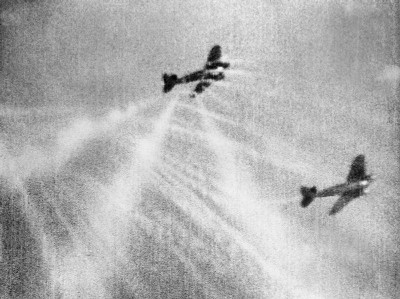
In 1900, while a senior in high school, Harry Truman was struck by this passage in Tennyson’s “Locksley Hall”:
For I dipt into the future, far as human eye could see,
Saw the Vision of the world, and all the wonder that would be;
Saw the heavens fill with commerce, argosies of magic sails,
Pilots of the purple twilight dropping down with costly bales;
Heard the heavens fill with shouting, and there rain’d a ghastly dew
From the nations’ airy navies grappling in the central blue;
Far along the world-wide whisper of the south-wind rushing warm,
With the standards of the peoples plunging thro’ the thunder-storm;
Till the war-drum throbb’d no longer, and the battle-flags were furl’d
In the Parliament of man, the Federation of the world.
There the common sense of most shall hold a fretful realm in awe,
And the kindly earth shall slumber, lapt in universal law.
It describes an aerial war of the future. Tennyson had written it in 1835, long before the advent of modern aircraft, but it assumed an eerie significance in 1940, when Germany undertook a sustained assault on the United Kingdom.
“This is a complete prophecy, if not virtually a description, of the Battle of Britain,” wrote Sir Douglas Bader, who commanded a Royal Air Force squadron during the fighting. “‘… the heavens fill with shouting’ refers to radio-telephonic communications between pilots. It is significant when one reads such prophecies (not related to the New Testament) after the event and finds them so accurate.” Winston Churchill called the poem “the most wonderful of modern prophecies.”
Truman, who by then was a senator from Missouri, had not forgotten it either: After discovering the poem in that high school class, he had copied out the passage and carried it ever since in his wallet.
